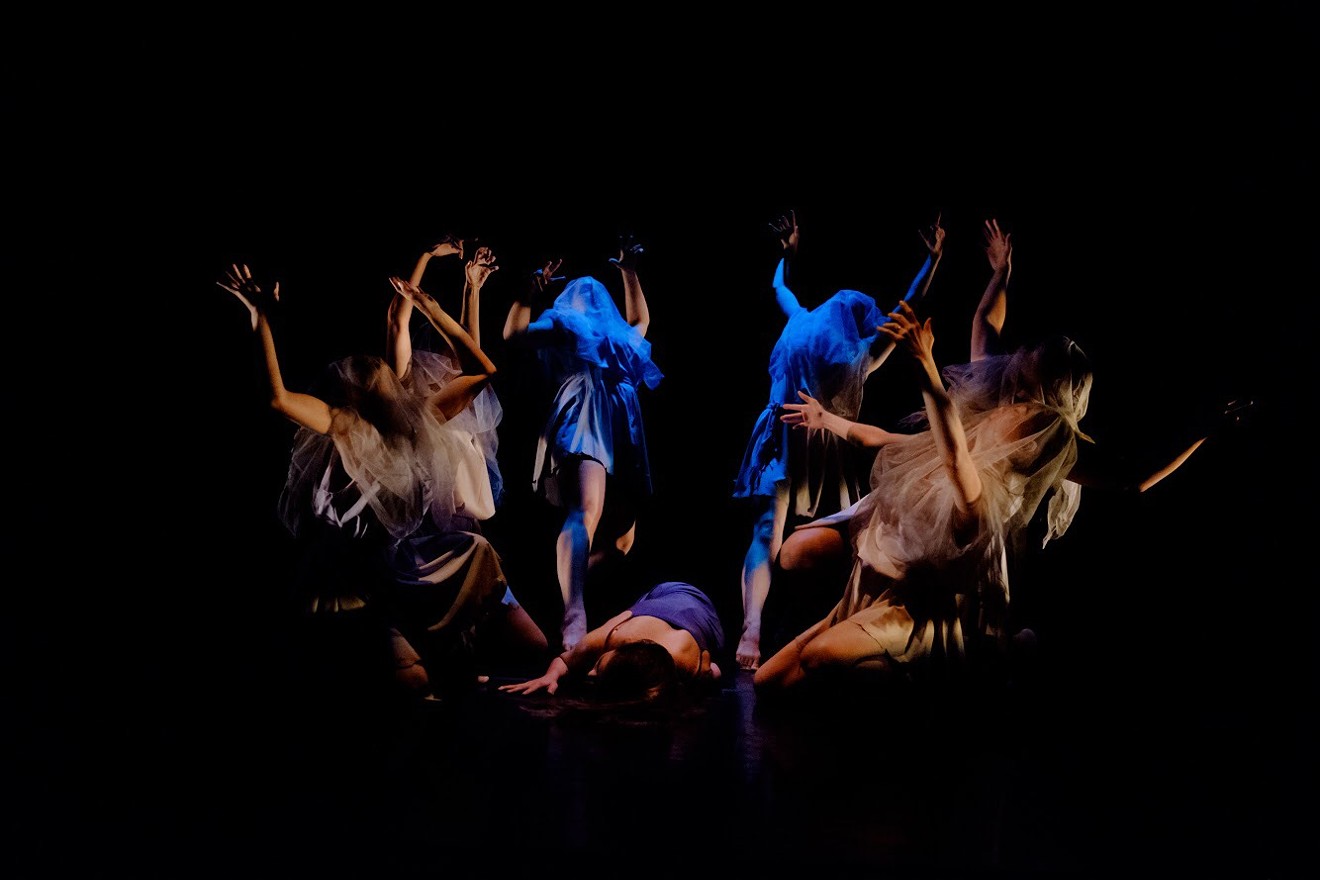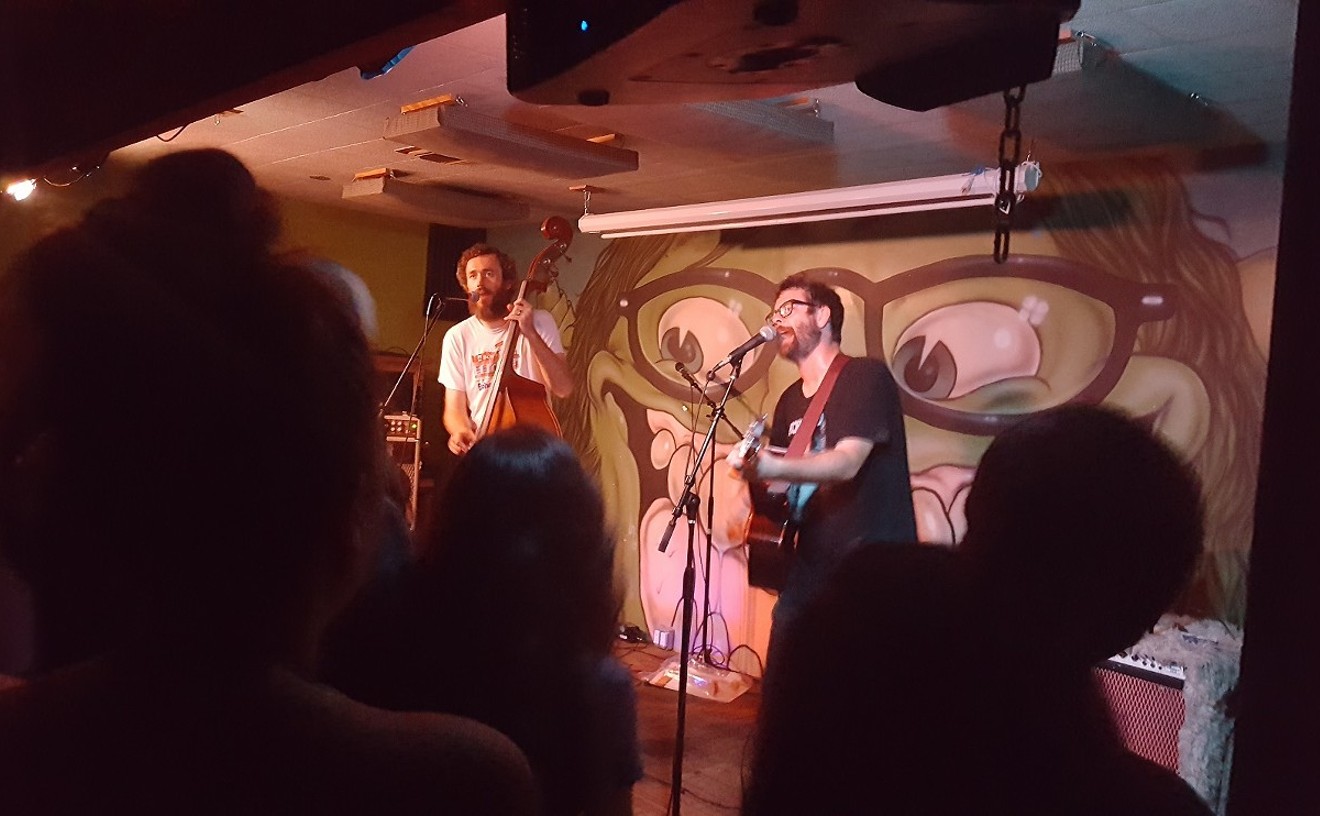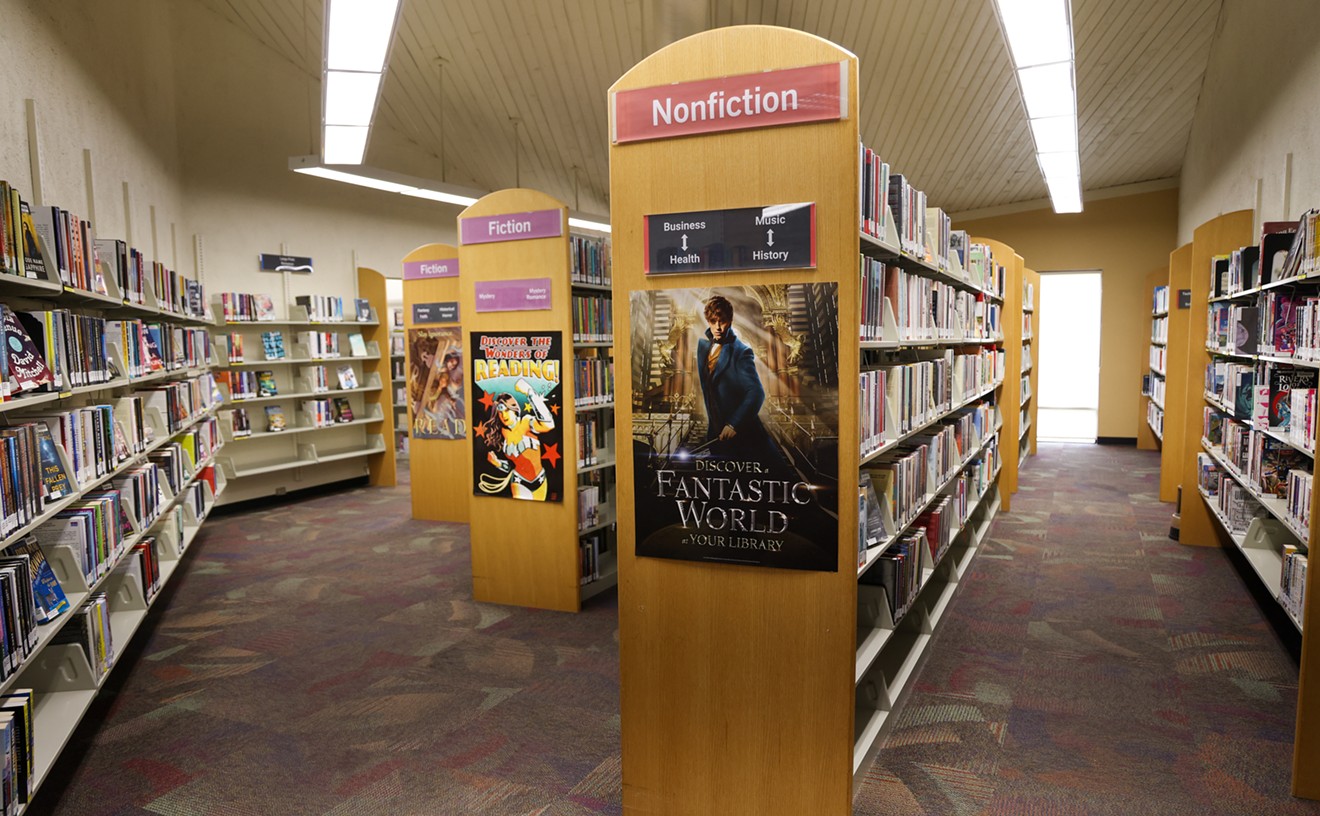Emotions ran deep at Phoenix’s first BlakTina Festival, a single-evening performance of dance created and performed by artists of color.
Through thoughtful choices of movement, subject matter, music, and spoken word, these creatives drew the audience into both inner and outer struggles.
The festival took place on Saturday, July 22, at Black Theatre Troupe’s performance space, where choreographers presented 10 pieces exploring both the universal human experience and the complexities of contemporary life for people of color.
It included eight pieces by choreographers based in metro Phoenix and two by choreographers from the Los Angeles area. That’s where the festival was founded back in 2013.
Phoenix-based choreographer and dancer Liliana Gomez partnered with festival founder Licia Perea to create the Valley's first BlakTina Festival.
They selected the choreographers, who chose their own dancers. And together, these artists delivered a powerful evening of dance. The performance was sold out, and Gomez is already planning for another BlakTina Festival in Phoenix next year.
Three solo performances, each choreographed by the dancer who performed it, were particularly strong.
For Self Portrait of a Dying Soul, Jenny Gerena sought to free herself from the century-old trappings of polite society, embodied in a long dress and traditional European décor. While seated in a formal chair with her hair in a bun, Gerena’s twitching belied her feelings of being trapped.
Although she broke free for a time and let loose a long cascade of dark curls, she returned to that chair to close out her piece – powerfully conveying how western civilization continues its death grip on those who aren’t part of the dominant culture, including women and people of color.
Gerena, a Phoenix-based Latina performance artist, received her master of fine arts in dance from Arizona State University in 2016. Recently, she was part of a cross-disciplinary team that created Roda-Viva through the new work development nonprofit [nueBOX] and Mesa Arts Center. Roda-Viva coupled contemporary dance and live music with visual art by Rossitza Todorova.
Ashley Baker, a black artist who holds a bachelor of fine arts in dance from ASU, also created a compelling work. Titled Mulato, her piece for the BlakTina Festival explored the prejudices faced by people of color, when that color doesn’t meet others’ expectations. But her work also raised the issue of how race informs identity, and its implications for real lives beyond mere theoretical considerations.
But the real stand-out was Alexander Patrick, a black dancer who recently moved from New Orleans to Phoenix, where he’s now dancing with several companies, including Scorpius Dance Theatre.
Patrick choreographed the festival’s opening number, titled Scarred From Being Scared, with black artist Malikah Fernandez. But he also choreographed and performed a solo piece titled Mirage, which also featured his own costume design.
Donning all white, including a flowing tunic that conveyed a yearning for transcendence, Patrick conjured the vicious persistence of self-doubt through music by New Orleans artist Ledisi and recordings of his own voice incessantly repeating “you’re so stupid” and similar messages. While doing so, he explored the use of pharmaceuticals in attempts to control one’s wilder impulses – even acting as though he was taking pills to reluctantly calm the noise in his own head.
There was humor in the festival's lineup, too.
With Ni Fú, Ni Fá, a four-member Los Angeles-based dance company called Primera Generación Dance Collective played with America’s cultural appropriation of the holiday Cinco de Mayo, a Mexican celebration of victory over French forces in 1862.
Collectively, these artists addressed issues at the heart of contemporary culture, where racism, sexism, and other social injustice continues to fuel strong rhetoric and feelings. And they took the audience on a moving journey through anger, love, fear, and frustration. Ultimately, the BlakTina Festival's greatest accomplishment was demonstrating the ongoing power of dance to capture and convey human emotions.
[
{
"name": "Air - MediumRectangle - Inline Content - Mobile Display Size",
"component": "18478561",
"insertPoint": "2",
"requiredCountToDisplay": "2"
},{
"name": "Editor Picks",
"component": "16759093",
"insertPoint": "4",
"requiredCountToDisplay": "1"
},{
"name": "Inline Links",
"component": "17980324",
"insertPoint": "8th",
"startingPoint": 8,
"requiredCountToDisplay": "7",
"maxInsertions": 25
},{
"name": "Air - MediumRectangle - Combo - Inline Content",
"component": "16759092",
"insertPoint": "8th",
"startingPoint": 8,
"requiredCountToDisplay": "7",
"maxInsertions": 25
},{
"name": "Inline Links",
"component": "17980324",
"insertPoint": "8th",
"startingPoint": 12,
"requiredCountToDisplay": "11",
"maxInsertions": 24
},{
"name": "Air - Leaderboard Tower - Combo - Inline Content",
"component": "16759094",
"insertPoint": "8th",
"startingPoint": 12,
"requiredCountToDisplay": "11",
"maxInsertions": 24
}
]












